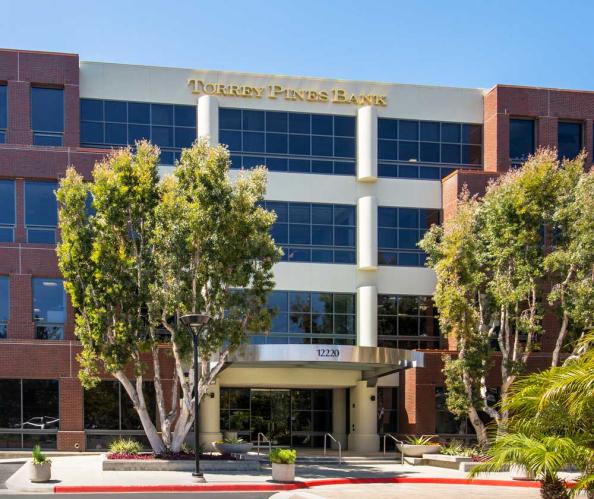The 5 Cs of Credit: How to Improve Your Odds When Applying for a Business Loan
Whether you need new equipment, a larger space or more staff to help you operate your company, borrowing money can increase your liquidity and help you achieve your business goals. Yet, while financing is out there, some Southern California companies don’t get the funds they need to grow.
First, it can be useful to gain perspective on what’s available. Depending on your business type and size, you may have robust options, including an SBA loan, a conventional loan, equipment financing or a loan against inventory or other assets.
In fiscal year 2021, two Small Business Administration (SBA) lending programs — SBA 504 loans and SBA 7(a) loans — made more than 61,000 loans totaling $44.8 billion to small businesses nationwide. In 2020 in the San Diego-Chula Vista-Carlsbad metropolitan statistical area (MSA), banks issued $5 billion in loans to businesses with revenues of $1 million or less, according to Community Reinvestment Act reports.
This lending is vital because only about half of small businesses survive five years or more, according to the SBA. Funding plays a part in the future of a business — and even though capital is available, the National Small Business Association reports that more than 25% of small-business owners have trouble accessing it.
A trusted banker can help you navigate the process of obtaining financing. For each type of funding, banks mitigate lending risk by evaluating borrowers’ credit when they apply for a loan. The review is based on several factors — known as the Five Cs of Credit — that help a lender determine the likelihood of a borrower defaulting on the debt. Here’s what you need to know to prepare your business before beginning a loan application.
Character
Lenders look at past behavior to determine a business owner’s character and reliability. They review how a potential borrower has managed past debt and whether there is a bankruptcy in their history.
Part of this assessment includes a review of your personal credit score. If you know your score could use some polishing, you would be wise to work on raising your score to 680 (the minimum for an SBA loan) or higher before applying for a business loan.
Capacity
Banks also look at the borrower’s ability to repay the loan. They will review your company’s cash-flow statements to determine how much income you generate from operations, as well as analyze the amount of debt outstanding compared to the revenue you expect to generate each month.
Collateral
Businesses can use collateral such as equipment or accounts receivable to secure a loan. In general, banks have greater opportunity for loan applications that list collateral than for those without collateral. Not only does the presence of collateral tell a bank that your business has a solid foundation, but the lender has the option of claiming the asset to cover its investment should the borrower default.
Capital
Another factor lenders use to determine creditworthiness is capital. In addition to looking at your company’s balance sheet, the lender will consider how much the business owner has invested in the company. Typically, a borrower with skin in the game may have a greater incentive not to default on a loan. And capital can be a way to repay the debt if a borrower is unable to make regular payments through revenue.
Conditions
Loan terms and the strength or weakness of the overall economy constitute the conditions that may affect borrowers. Bankers also take into consideration the reason a borrower wants the loan, whether for working capital, equipment or expansion.
Whatever your goals are for your business, a loan can help you make them a reality. Focusing on the Five Cs of Credit can help ensure the capital will be there when you need it. Your expert banker is a trusted business adviser, just like your accountant or attorney, who can help you think through your options and opportunities. To learn more about how we can help you make smart decisions about credit, contact your Torrey Pines Bank relationship manager.
Torrey Pines Bank
Torrey Pines Bank, the Southern California division of Western Alliance Bank, Member FDIC, delivers relationship banking that puts clients at the center of everything. Founded in 2003, Torrey Pines Bank offers a full spectrum of tailored commercial banking solutions delivered with outstanding service. With offices throughout San Diego County, Orange County and Los Angeles County, Torrey Pines Bank is part of Western Alliance Bancorporation, which has more than $85 billion in assets. Major accolades include being ranked as a top U.S. bank in 2024 by American Banker and Bank Director. As a regional bank with significant national capabilities, Torrey Pines Bank delivers the reach, resources and local market expertise that make a difference for customers.

All offers of credit are subject to credit approval, satisfactory legal documentation, and regulatory compliance. Borrowers are responsible for any appraisal and environmental fees plus customary closing costs, including title, escrow, documentation fees and may be responsible for any bank fees including bridge loan, construction loan, and packaging fees.